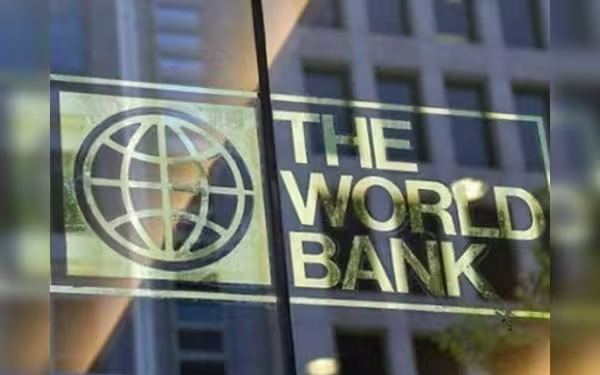Saturday, November 16, 2024 07:34 PM
World Bank Report Highlights Financial Crisis in Poorest Nations
- 26 poorest countries face worst financial crisis since 2006.
- Average debt-to-GDP ratio reaches 72%, an 18-year high.
- Natural disasters cause significant economic losses for these nations.
 Image Credits: brecorder
Image Credits: brecorderWorld Bank reveals 26 poorest nations face unprecedented financial crisis, with alarming debt levels and vulnerability to disasters.
In a recent report released by the World Bank, it has been revealed that the world’s 26 poorest countries are facing their worst financial situation since 2006. These nations, which are home to approximately 40% of the most impoverished individuals globally, are grappling with unprecedented levels of debt and heightened vulnerability to natural disasters and economic shocks. The findings are particularly alarming as they indicate that these economies are, on average, poorer today than they were just before the COVID-19 pandemic struck, while the rest of the world has largely bounced back and resumed its growth.
The report comes at a crucial time, just a week before the annual meetings of the World Bank and the International Monetary Fund in Washington. It highlights a significant setback in the global fight against extreme poverty and emphasizes the World Bank’s ongoing efforts to raise $100 billion to replenish its financing fund for the poorest nations, known as the International Development Association (IDA).
According to the World Bank, the 26 countries analyzed have annual per-capita incomes of less than $1,145. These nations are increasingly dependent on IDA grants and loans with near-zero interest rates, as traditional market financing options have become scarce. The average debt-to-GDP ratio for these countries has reached a staggering 72%, marking an 18-year high. Alarmingly, half of these nations are either in debt distress or are at a high risk of falling into it.
Most of the countries included in the study are located in sub-Saharan Africa, with nations like Ethiopia, Chad, and Congo being prominent examples. However, the list also features Afghanistan and Yemen. A troubling aspect of the report is that two-thirds of these 26 poorest countries are either embroiled in armed conflicts or struggle to maintain order due to institutional and social fragility. This instability severely hampers foreign investment and leaves these nations vulnerable to the volatile nature of commodity exports, which often leads to boom-and-bust cycles.
World Bank chief economist Indermit Gill emphasized the importance of the IDA, stating, "At a time when much of the world simply backed away from the poorest countries, IDA has been their lifeline." Over the past five years, the IDA has directed most of its financial resources to these low-income economies, helping them navigate the historic setbacks they have faced.
The IDA typically undergoes a replenishment process every three years, relying on contributions from World Bank member countries. In 2021, it raised a record $93 billion, and World Bank President Ajay Banga is now aiming to surpass that figure with over $100 billion in pledges by December 6.
Natural disasters have also taken a significant toll on these nations in the past decade. Between 2011 and 2023, such disasters have resulted in average annual losses equivalent to 2% of GDP, which is five times higher than the average for lower-middle-income countries. This stark reality underscores the urgent need for increased investment in disaster resilience and recovery.
Furthermore, the report suggests that these economies, which often have large informal sectors operating outside their tax systems, must take proactive steps to improve their financial situations. This includes enhancing tax collection processes by simplifying taxpayer registration and tax administration, as well as improving the efficiency of public spending.
The findings of the World Bank report serve as a wake-up call for the global community. The plight of the 26 poorest nations is a stark reminder of the challenges that persist in the fight against poverty. As the world moves forward, it is crucial that we do not forget those who are struggling the most. By supporting initiatives like the IDA and encouraging these nations to strengthen their financial systems, we can work towards a more equitable future for all.













